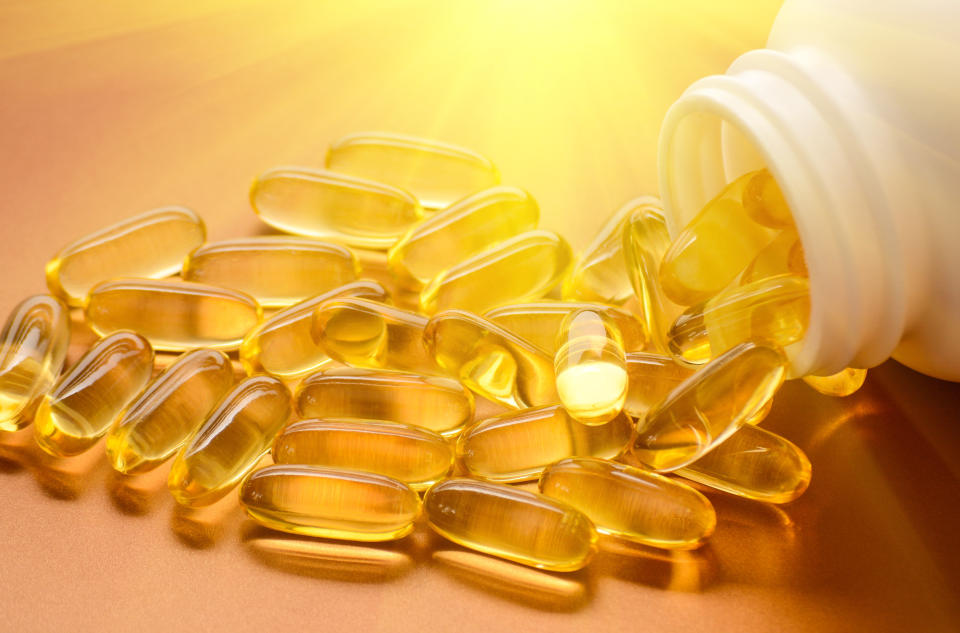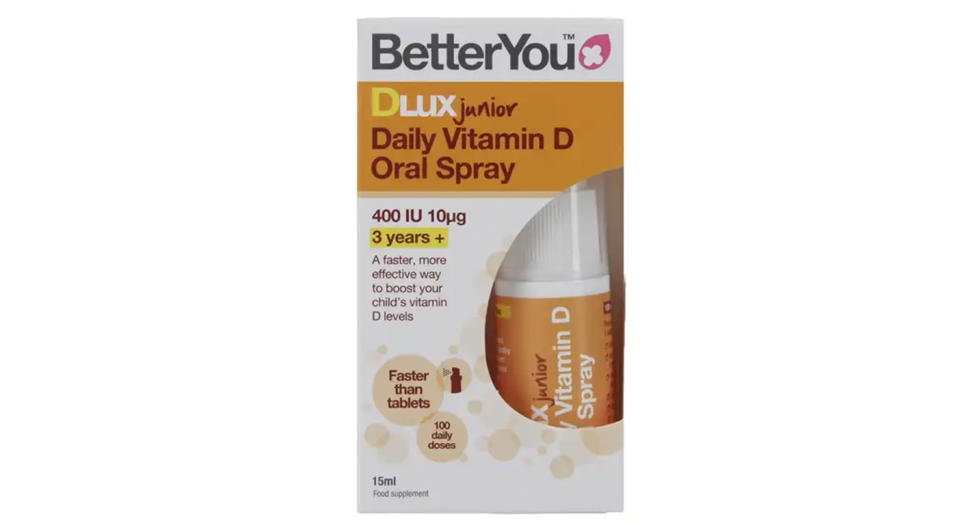Coronavirus: Why you should be taking vitamin D during lockdown

While the sun may be shining, the coronavirus lockdown means millions of Britons are missing out on its springtime rays.
Boris Johnson has introduced draconian measures that only allow people to leave their home for “very limited purposes”, like shopping for essentials or to exercise.
To ensure we keep our vitamin D levels topped up, health officials have recommended people take the sunshine supplement.
Vitamin D is an essential nutrient that helps keep bones, muscles and teeth healthy.
Studies suggest taking the supplement could ward off colds and flu, however, there is no evidence it protects against the coronavirus.
Unfortunately, the cloudy grey days Britons are forced to endure between October and March mean nobody gets sufficient levels of vitamin D from the sun alone.
Public Health England (PHE) therefore recommends everyone, regardless of their age or overall health, takes a 10 microgram supplement in the northern hemisphere’s autumn and winter.
Latest coronavirus news, updates and advice
Live: Follow all the latest updates from the UK and around the world
Fact-checker: The number of COVID-19 cases in your local area
Explained: Symptoms, latest advice and how it compares to the flu

Generally speaking, most people get their vitamin D quota from the sun during spring and summer.
A supplement therefore becomes more “optional” in the warmer months.
With the coronavirus lockdown, however, PHE has urged people to consider taking the vitamin despite the sunshine.
“Vitamin D is essential for immunity and many studies show it helps to protect against respiratory infections, including the common cold, flu and pneumonia,” Dr Sarah Brew medical director of Healthspan told Yahoo UK.
“With the continuing lockdown, we are all more prone to low vitamin D levels from being confined indoors.”
PHE has urged people not to stockpile the supplement amid the coronavirus pandemic.
How much vitamin D do I need?
Adults and children over one-year-old require 10 micrograms of vitamin D a day.
The same goes for pregnant women, breastfeeding mothers and people at risk of vitamin D deficiency, like those who are housebound.
One microgram is 1,000 times less than a milligram. Ten micrograms is often written as 10μg.
Babies under one need between 8.5μg and 10μg of vitamin D a day.
The Department of Health and Social Care recommends breastfed babies be given a supplement via liquid drops.
Formula milk is fortified with the nutrient, therefore babies fed this way should not be given vitamin D until they are having less than 500ml a day.
Foods that contain vitamin D – like oily fish, red meat, liver, egg yolks and fortified cereals or spreads – also help you stay topped up, however, it is difficult to get sufficient levels from diet alone.
Coronavirus: Will taking vitamin D help protect me?
With the coronavirus only emerging at the end of last year, our knowledge of the pathogen is somewhat limited.
Nevertheless, there is no evidence taking vitamin D will protect you from the infection or developing complications.
Studies are looking into this, with some scientists claiming coronavirus patients fare worse if they are deficient in vitamin D.
Experts stress, however, a lot more research into this is required.
In the meantime, vitamin D supports good overall health.
Can you take too much vitamin D?
When getting vitamin D via the sun, our body automatically “switches off” production of the nutrient when it has had enough.
Too much sun can cause painful burns and even skin cancer in the long-term. It is therefore important to wear sunscreen, stay in the shade and cover up.
For adults, a 10μg supplement a day is sufficient and safe, including when taken during the summer. Adults should have no more than 100μg a day.
Children aged between one and 10 should have no more than 50μg of vitamin D a day. Babies under 12 months should have no more than 25μg a day.
Over time, too much vitamin D can cause calcium to build up in the body, damaging bones, the kidneys and the heart.
Follow the advice of your doctor if they recommend a higher or lower dose than the official guidance.

What happens if I become vitamin D deficient?
Vitamin D helps keep bones healthy.
Deficiency can trigger rickets in children. This is defined as pain, slow growth and deformities of the bones.
Rickets has been rare in the UK since foods began being fortified in the 20th century, however, a handful of cases still arise every year.
In adults, rickets is known as osteomalacia, defined as muscle weakness and painful fragile bones.
3 products that include 10 micrograms of Vitamin D
Yahoo Lifestyle is committed to finding you the best products at the best prices. We may receive a share from purchases made via links on this page. Pricing and availability are subject to change.
Vitamin D3 Drops for Children 60ml | £7.99 from Amazon

BetterYou Dlux Junior Daily Vitamin D Oral Spray 15ml | £6.65 from Holland & Barrett

Vitamin D 240 Tablets | £8.95 from Healthspan





